Star witness tells Ben Roberts-Smith trial Australian soldiers are ‘infidels’
An Afghan villager and star Nine Newspapers witness has told the Ben Roberts-Smith trial Australian soldiers are “infidels” who “come into our houses … to our women”.
An Afghan villager has smiled as he told the Ben Roberts-Smith trial he regards foreign soldiers like Australian troops as “infidels” who “come into our houses to go inside to our women”.
Mohammed Hanifa, who claims Mr Roberts-Smith kicked his uncle, Ali Jan, off a cliff and was complicit in the man’s murder, smiled as he said he did not like the foreign “infidel” troops.
He agreed that he knew “infidel soldiers” were hunting a man, Hekmutullah, before his uncle’s death in his village of Darwan in central Afghanistan on September 11, 2012.
Ben Roberts-Smith and fellow SAS troops landed in Darwan on that day searching for Hekmutullah, who had murdered three Australian soldiers the previous month.
Mr Hanifa is Nine Newspapers’ principal Afghan villager witness in their allegation that Ben Roberts-Smith was involved in one of six alleged war crimes, Ali Jan’s 2012 murder.
Under cross-examination by Mr Roberts-Smith’s lawyer, Bruce McClintock SC, Mr Hanifa also admitted that any Afghan killed by foreign soldiers was regarded as a “martyr”.
The exchange came after Mr McClintock repeatedly accused Mr Hanifa of telling “falsehoods”, “lies” or “barefaced lies”, which the witness denied.
Mr Hanifa, who Mr McClintock at one point suggested had been coached, repeatedly replied saying, “If you call it a lie, that’s up to you.”
Mr Roberts-Smith is suing Nine Newspapers which alleged that on that day Ben Roberts-Smith kicked Ali Jan off a cliff and then other soldiers shot him.
Nine claims Ali Jan was unarmed and had been handcuffed before he was kicked and shot dead.
On Tuesday, the Federal Court also released high-resolution photographs of the village and the cliff from which Nine claims Ben Roberts-Smith kicked Ali Jan.
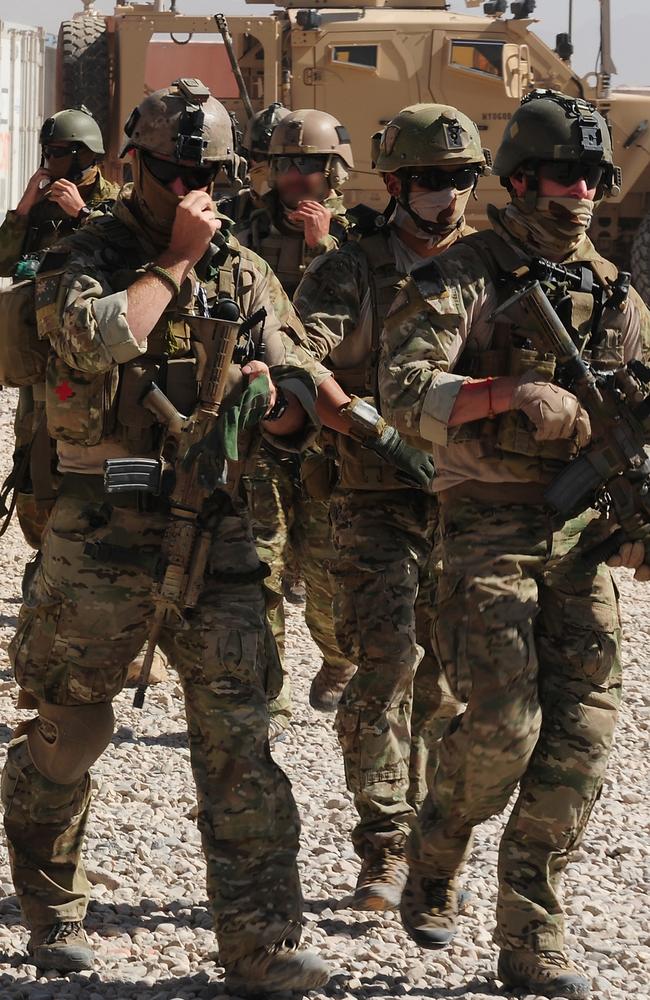
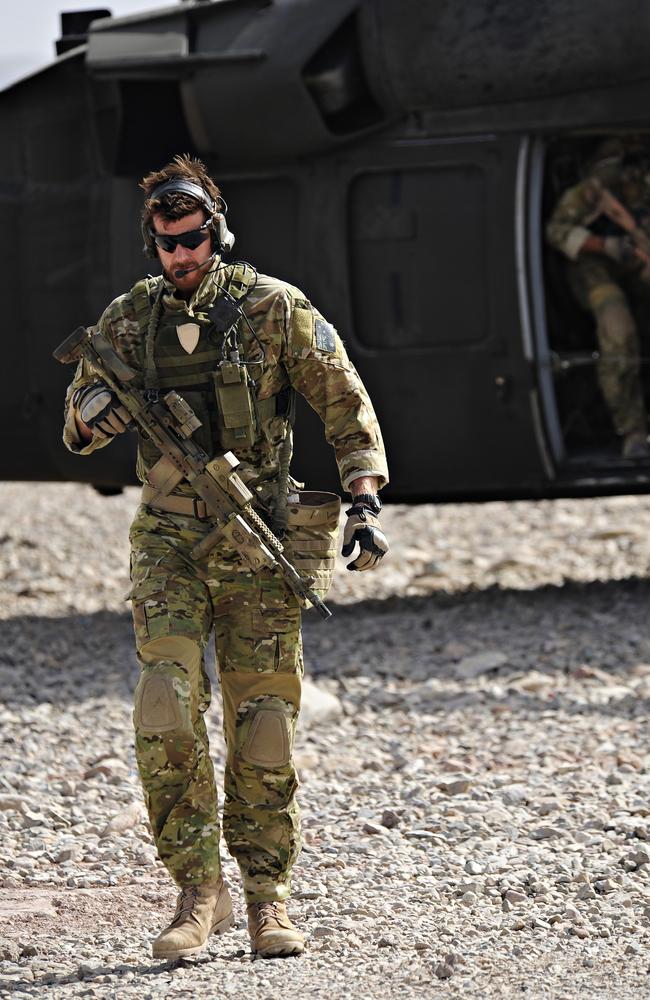
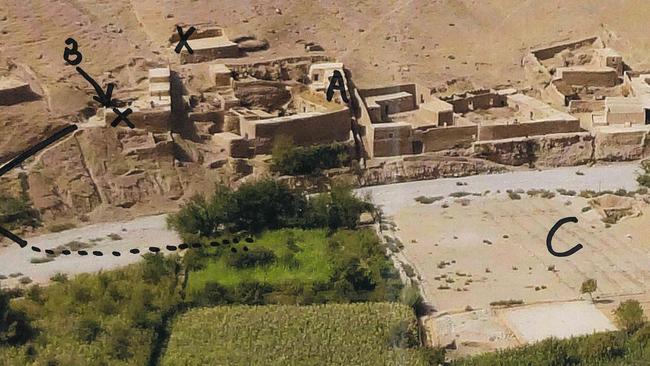
Mr Roberts-Smith denies the shooting was unlawful, saying on that day SAS forces killed a “spotter” – a person spying on behalf of Taliban insurgents and reporting the location and other details of Australian troops to the enemy.
Mr Hanifa is one of four Afghan villagers testifying against Mr Roberts-Smith in his defamation proceedings against Nine Newspapers.
Mr Roberts-Smith has rejected all Nine’s allegations claiming he committed or was complicit in war crimes on five Afghanistan missions between 2009 and 2012, and a domestic violence assault in Canberra in March 2018.
Mr McClintock was questioning Mohammed Hanifa on the second day of a week in which the defamation trial is hearing evidence via AVL from Kabul, with an interpreter translating from Canada.
Mr Hanifa admitted a person, o behalf of the parties for Nine newspapers was paying for himself, his wife and his four daughters’ expenses while staying in Kabul to testify.
Mr McClintock: “What do you call the foreign soldiers that came to Darwan on the day the raid happened? You call them infidel soldiers, don’t you?”
Mr Hanifa: “It’s true we call them infidels.”
Mr McClintock: “You regard them as infidels.”
Mr Hanifa – who appeared to be partly talking to the Pashto language interpreter who was translating the evidence, replied: “Yes brother it is like that, that’s how people say.”
Mr McClintock: “You hate the soldiers don’t you because they’re infidels?
Smiling, Mr Hanifa again addressed the interpreter: “My brother you are Pashtun, I am Pashtun. If they are coming to our houses to go inside to our women, of course that’s what we call them, infidels.”
Mr McClintock: “You hate them?”
Mr Hanifa: “No, I don’t like them.”
Mr McClintock: “You call people killed by foreign soldiers martyrs? That’s how you see them?”
Mr Hanifa: “Yes, that’s it. Yes.”
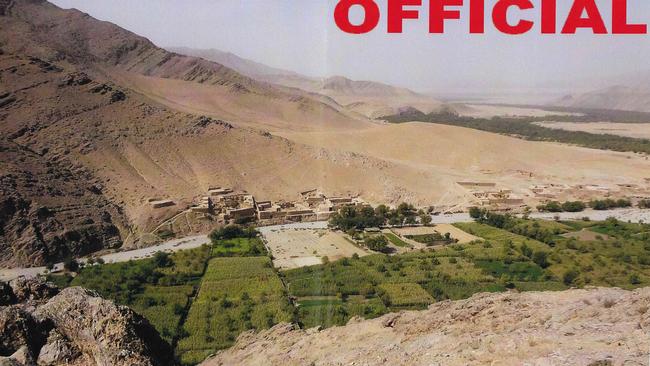
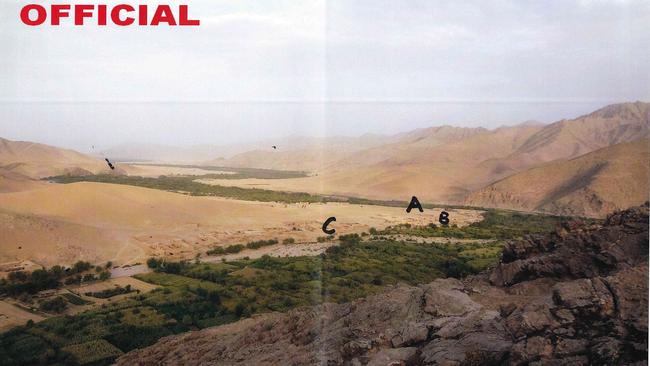
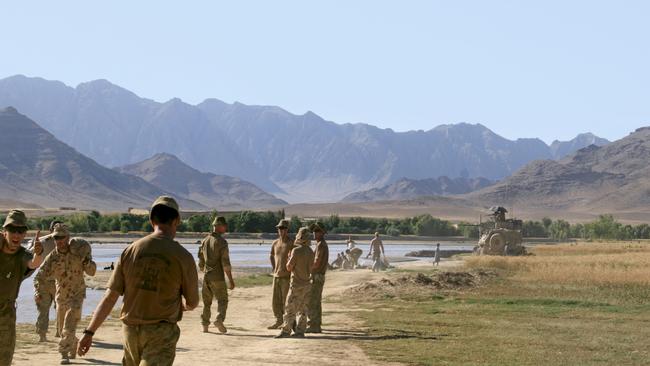
Mr Hanifa also admitted he knew a Taliban insurgent who had been killed on the same day his uncle died by the man’s special Taliban wireless network name “Abed”.
The man, also known as Mullah Gafar, was killed by Ben Roberts-Smith on September 11, 2012 who swam the Helmand River to kill the insurgent.
Mr Hanifa agreed he knew “Abed” had a Kalashnikov rifle, and a magazine and agreed it was common knowledge among villagers that he had been killed across the Helmand River at Darwan by a foreign soldier.
Mr Hanifa denied that he, or one of his 12 brothers named Mohammed Shah, was a member of the Taliban.
On the day of the raid, allied troops raided the compound of Darwan villager Haji Mohammed Gul, and two men were killed at the premises.
At the compound, soldiers found two AK-47 rifles, a motorcycle and 100kg of poppy seed.
Mr McClintock suggested one of the men who stayed at Haji Mohammed’s compound the night before the raid was Ali Jan.
Both Haji Mohammed and one of the men killed at his compound were relatives of Mr Hanifa’s by marriage.
Mr McClintock also asked Mr Hanifa about whether Hekmutullah, who it was believed had ridden into Darwan on a motorcycle, had also stayed at the compound.
Mr Hanifa said he “was not aware” but he agreed he knew Hekmutullah’s other name.
Asked about the purpose of the 100kg of poppy seed, he said “people use it for many things” but agreed with Mr McClintock “you can cultivate opium” with it.
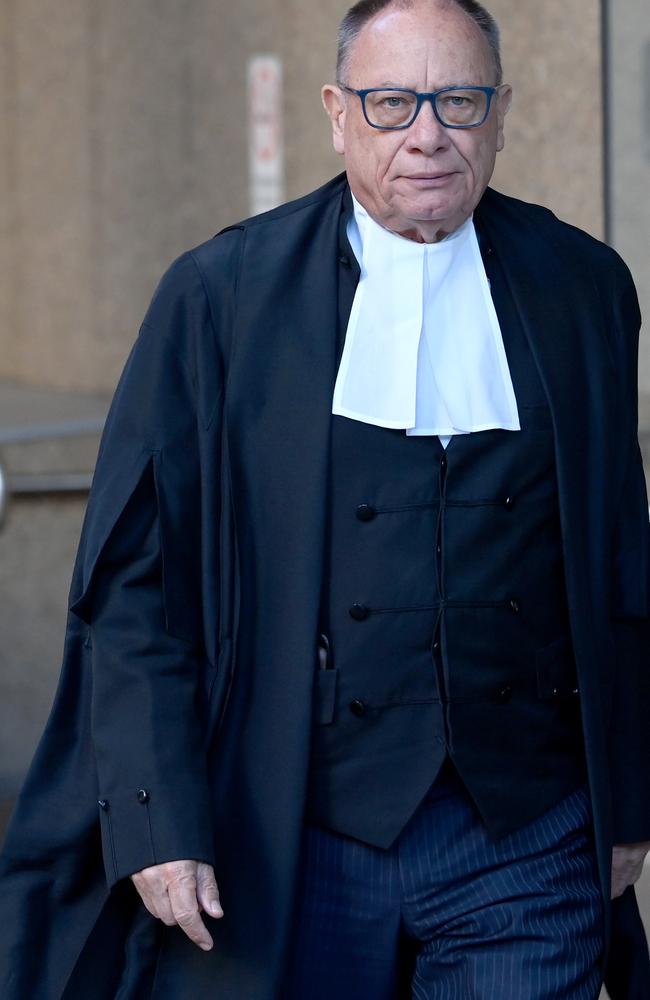
Asked whether that was what the Taliban did, exchanging packets of opium for cash, he replied: “I don’t know about that.”
He told the court on Tuesday that he and Ali Jan had been proceeding along a dry creek bed with three donkeys when soldiers shot twice at them.
This was after four, or perhaps eight helicopters had arrived in Darwan, and he had warned his neighbour that there was “a raid” on.
A vehicle had driven around the village honking its horn before the raid, but Mr Hanifa refuted Mr McClintock’s suggestion this was a warning.
Mr McClintock: “You knew Darwan was being raided because it was a Taliban stronghold?”
Mr Hanifa: “There were raids, there were raids, I don’t know about Darwan being the centre of the Taliban.”
He said they went to have tea and melon at the house of a neighbour – Man Gul, who is also due to testify – while the young women tethered the donkeys.
Mr McClintock suggested Mr Hanifa had deliberately lied about being shot at twice by soldiers, about seeing the soldiers with a dog that wore goggles, and seeing an extra four helicopters on top of the first four which landed at Darwan.
“I’m explaining what I see with my eyes, whether you call it a lie or a truth I leave that to the respected judge,” Mr Hanifa replied to one of the accusations of having lied.
But, asked by Mr McClintock if he had been blindfolded by soldiers during the raid, Mr Hanifa said he had and that he had not previously told anyone that.
The court heard Mr Hanifa was repeatedly asked by an interpreter after the soldiers arrived by helicopter on the day “are you a Talib” (a Taliban insurgent), which he denied.
Mr Hanifa, 38, who has lived his life in Darwan, said he had been waiting to take wheat on his donkeys to the mill to be ground into flour.
He also said he was planning to accompany Ali Jan to the mountains to collect wood, and that he had suggested he and Ali Jan use donkeys to pose as “nomads” to trick the soldiers.
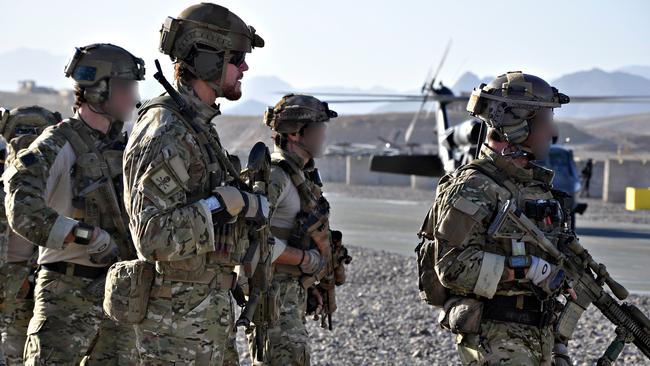
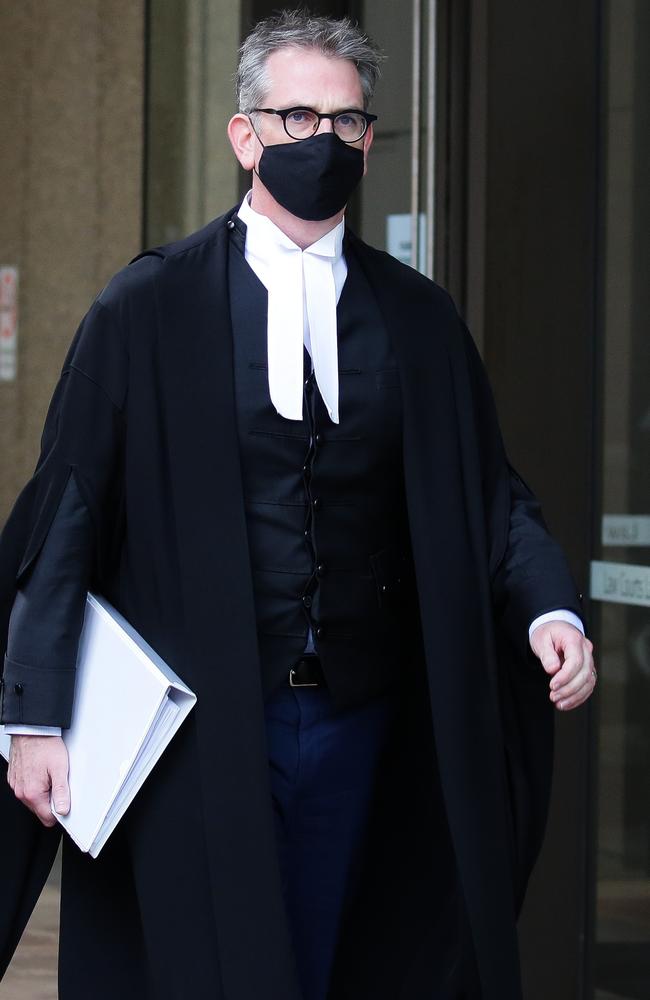
RELATED: Afghan villager claims he was beaten by ‘tall soldier with blue eyes’
The defamation trial resumed on Monday for just a week so that the villagers could give evidence before security in Afghanistan disintegrates with the rise of the Taliban following the withdrawal of allied troops.
The trial has been in limbo since Sydney’s Covid-19 lockdown and is likely to be adjourned after the Afghan evidence for several more weeks.
Mr Roberts-Smith, who spent almost three weeks in the witness box in June and July, earlier testified that he did not kick Ali Jan off a cliff.
He has told the court that there was no cliff in the location in Darwan, but instead a creek bed with a raised side.
The war veteran has previously told the trial: “I have never shot an unarmed man.”
On the day in question, Mr Roberts-Smith and other SAS troops arrived in Darwan looking for a rogue Afghan army officer, Hekmutullah, who had executed three Australian soldiers the previous month.
RELATED: Ben Roberts-Smith exercises with blonde trainer as he awaits trial decision
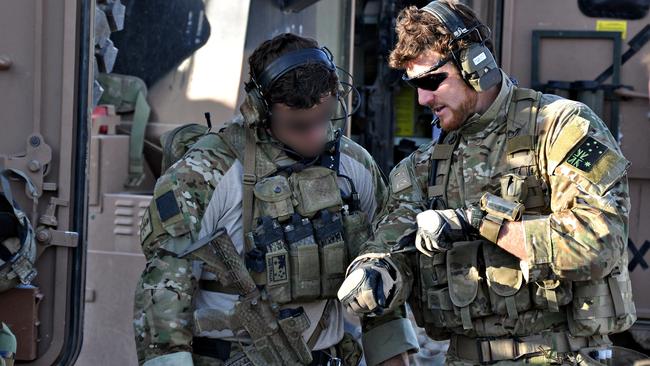
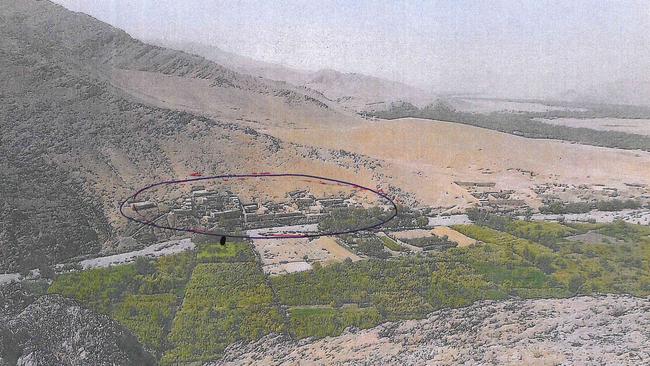
On Monday, Mr Hanifa alleged that a “big soldier with blue eyes” repeatedly beat him and then kicked his uncle in a way similar to what Nine Newspapers has claimed the war hero had done, which Mr Roberts-Smith has denied.
He also said the “big soldier” had a wet uniform with “sand from the river” on it, which was consistent with Mr Roberts-Smith swimming across a river on the same day to shoot a Taliban insurgent.
Describing how “the big soldier” allegedly punched, kicked and pushed him, Mohammed Hanifa said the soldier had at first kicked his uncle Ali Jan “really hard”.
“The big soldier he came, he said something to him and Ali Jan smiled and then he kicked him really hard and fell on his back,” Mr Hanifa said.
“At this time I really got scared.”
Mr Hanifa said Ali Jan’s “hands were tied in the back” and then he was “rolling down, rolling down until he reached the river”.
The witness then said he saw two other soldiers drag “Ali Jan towards the berry tree” after which he heard shots and later he followed drops of blood and saw Ali Jan’s body.
But under cross-examination by Mr McClintock, Mr Hanifa was accused of introducing the “berry tree” into evidence.
Asked whether he had signed a statement using his fingerprint several months ago, Mr Hanifa – who cannot read or write – agreed he had and said both it and his testimony on Monday had been true.
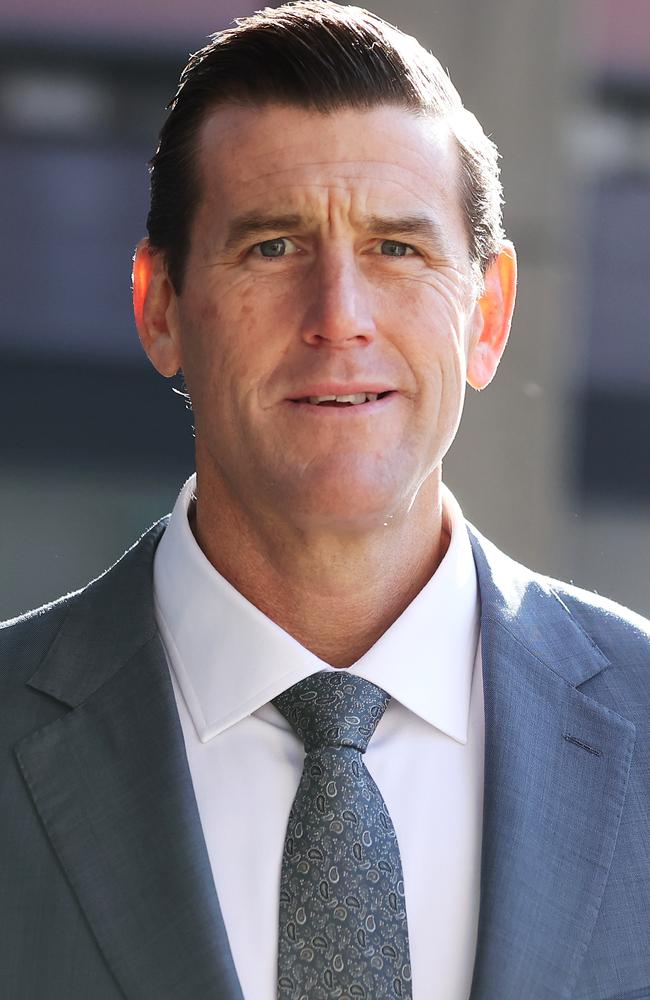
On Monday, Nine Newspapers’ barrister Nicholas Owens SC repeatedly asked Mohammed Hanifa to identify an embankment or slope in the creek in the middle of Darwan.
Mr Hanifa could not.
Asking the interpreter in Canada to ask the question once again, Mr Owens said: “On the day Ali Jan died, does he remember if there was an embankment or slope up from creek bed to the fields?”
Mr Hanifa’s answer via the interpreter was: “No, nothing like that.”
Ali Jan was allegedly shot in a cornfield on the outskirts of Darwan, after Mr Roberts-Smith and fellow soldiers arrived by helicopter on September 11, 2012.
The Australian troops were looking for a rogue Afghan army officer, Hekmutullah.
Known as “Jungle Effect”, Hekmutullah had murdered three Australian soldiers, Corporal Stjepan Milosevic, Sapper James Martin and Private Robert Poate, the month before.
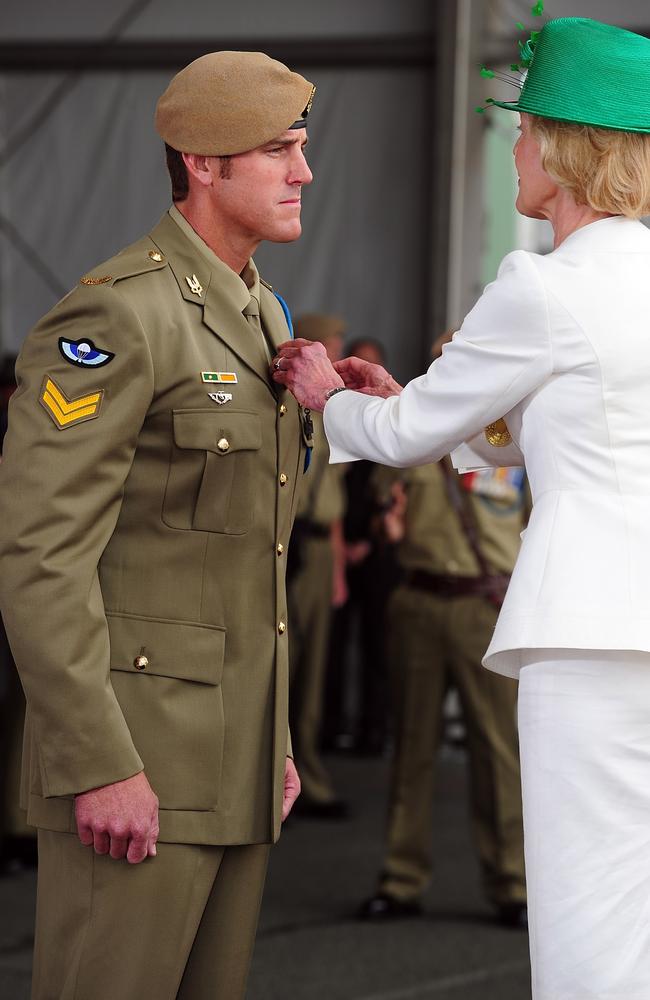
Mr Roberts-Smith has repeatedly denied all allegations, saying he was “sad” and angered by the reports which had destroyed his reputation.
He told the court he had never assaulted the woman known as Person 17, nor any woman, and that since news reports naming him had been published, he felt he was looked at in the street as a woman basher.
Mr Roberts-Smith told the court he had devoted his life to fighting for his country and had done so “with honour”.
Since the Nine reports, his lawyers have told the court, his post-army career as a public speaker and anti-domestic violence advocate had evaporated.
Bruce McClintock SC told the court he would be seeking uncapped record damages for his client if they won the case.
The trial is expected to last for this week, then be put on hold again until the current Covid-19 lockdown ends.
The majority of witnesses for Nine’s defence reside in Queensland and Western Australia which have closed borders to NSW.

